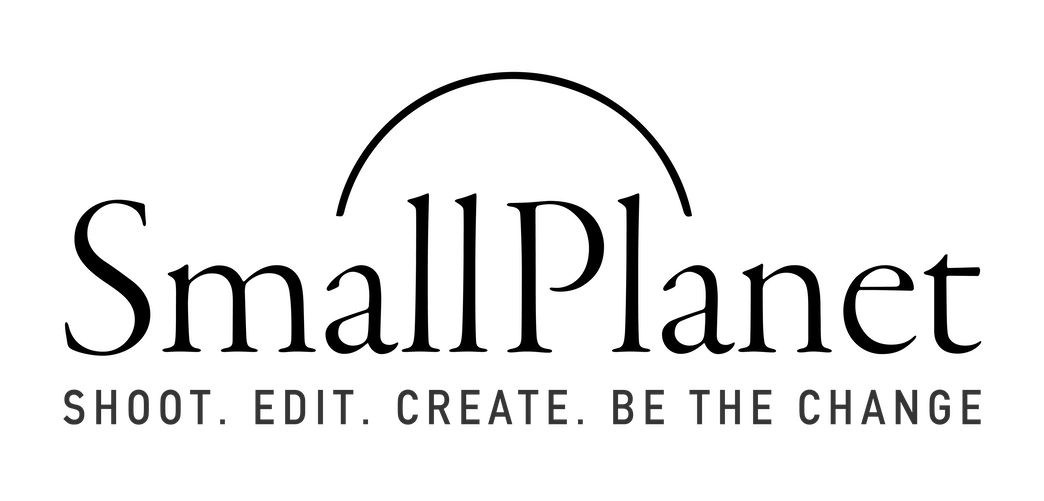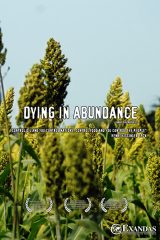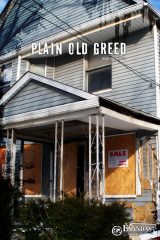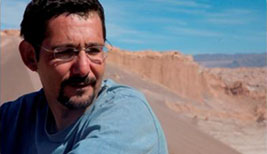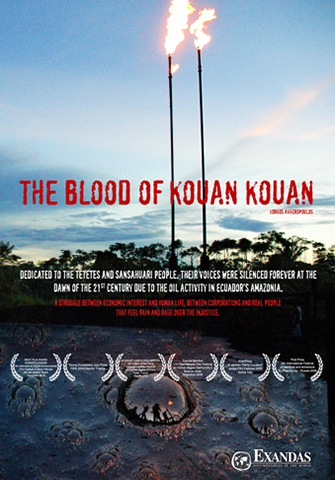
The Blood of Kouan Kouan
Dir: Yorgos AvgeropoulosIn the virgin tropical forests of the Amazon, the region with the richest biodiversity in the world, an unspeakable crime has been and is still being committed against humankind. Texaco is accused of dumping 18.5 billion gallons of toxic oil waste into the Ecuadorian Amazonia. Petroecuador, the state oil company, is accused of causing hundreds of oils spills into the jungle.
Ancient native populations are considered invisible and expendable, victims of the oil companies’ easy profiteering. They are disappearing on a massive scale, as pollution kills the animals they hunt and causes illnesses until recently unknown to them, such as cancer.
This documentary – the second by Yorgos Avgeropoulos on the same subject, following multi-awarded “Delta – Oil’s Dirty Business” – is dedicated to the Tetetes and Sansahuari people. Their voices were silenced forever at the dawn of the 21st century on account of the region’s “development”.
Watch the Film Now!
Choose the language you prefer and stream the film in Full HD from any digital device. Enjoy your private screening!
Buy the DVD
€9,99
Public Screening
Are you interested in organizing a public screening of our film? Send us an email with your inquiry and we will be glad to assist you!
Educational / Library Use
Are you interested in enriching the library of your institution with our film? Contact us and let's create together an informed public!
- DURATION: 62min
- AVAILABLE IN THE FOLLOWING LANGUAGES: English | French | Italian | Greek
- AVAILABLE VERSIONS: English (62min) | French (62min) | Italian (62min) | Greek (62min)
- YEAR OF PRODUCTION: 2009
- Written & Directed by: Yorgos Avgeropoulos
- Production Manager: Anastasia Skoubri
- Director of Photography: Alexis Barzos
- Research Coordinator: Aggelos Athanasopoulos
- Associated Producer: Manolis Filaktidis
- Original Music by: Yiannis Paxevanis
- Editing: Yiannis Biliris, Anna Prokou
- Website Coordinator: Apostolis Kaparoudakis
- Graphics: Sakis Palpanas
BEST FILM AWARD ROBERTO FARIAS
4th International Social-Environmental Film Festival of Nova Friburgo
Río de Janeiro, Brazil
December 2010
SPECIAL MENTION
8th Paris Human Rights International Film Festival (FIFDH)
Paris, France
March 2010
STUDENT JURY’S PRIX SPÉCIAL
8th Paris Human Rights International Film Festival (FIFDH)
Paris, France
March 2010
FIRST PRIZE in “Deny Location” section
7th Ischia Film Festival
Ichia, Italy
July 2009
SECOND MENTION in "Environment" section
11th International Film Festival on Human Rights DerHumALC
Buenos Aires, Argentina
June 2009
FIRST PRIZE
6th International Festival of Maritime and Adventure
St. Petersburg, Russia
April 2009
YOUNG EUROPEANS JURY PRIZE
Festival International des Programmes Audiovisuels (FIPA)
Biarritz, France
January 2009
PRODUCTION NOTES
“We were living in peace in our ancestral homeland and someone said one day that an oil company had entered our area. We did not know what kind of work that was, or that they would destroy Nature. Communication was difficult, as we didn’t understand what language they spoke…”
Alejandro, Shaman of the Cofan tribe
For centuries, Ecuador’s Amazonia was an inaccessible land. It was considered “no man’s land”, an inhospitable, savage region where humankind could not survive.
However, in the depths of the jungle, eight native tribes (Sionas, Cofanes, Secoyas, Shuares, Huaoranis, Kichwas, Tetetes and Sansahuaris) lived in harmony with their surroundings and no contact with the outside world. The Cofane shamans would drink the Yagé and come in contact with Kwan Kwan, the god of the subsurface that rules over the jungle and its beasts. They would ask him to bring animals to them and when the animals approached the village they would easily hunt them down and share them with the whole community.
However, at the beginning of the 60’s, everything changed. A subterranean ocean of oil was discovered underneath the thick jungle, one of Latin America’s biggest oil beds.
So, in 1964, white people began to fill the area. And they were none other than the workers of Texaco, the multinational company that the Ecuadorian state entrusted with its initiation into oil-drilling.
The Cofane began to hear the noise. So they sent three people to find out what was going on. When they arrived, they saw some foreign gringos with helmets, uniforms, and a lot of machinery. They sat and watched.
When they saw the natives, the Texaco workers wanted to give them food. They gave them a bowl of rice and three spoons. After having eaten, the Cofanes took the bowl and spoons and left.
That is how Ecuador’s Amazonia came in contact with “development” and the Western civilization. Today the Cofane say the oil wells in their areas were negotiated for a bowl of rice and three spoons.
Then the settlers arrived. The state would subsidize anyone who wanted to go east into the inhospitable jungle with 50 hectares of tropical land to deforest and cultivate. Thousands arrived from all over Ecuador. New towns sprang up. They were poor mestizo and black people filled with hope, looking for land and a job in the new industry. Today, there are thousands of disappointed, impoverished residents.
Some native tribes, such as the Huaoranis, resisted the looting of their land with arrows and blow-pipes. However, the countdown had already begun. The animals and fish were dying, there were less animals to hunt and new diseases were annihilating the population. The shamans tried to heal them with medicinal plants, but couldn’t.
The jungle was filled with hundreds of tanks where Texaco dumped the toxic waste from the drilling. With no efforts to make them watertight and the help of tropical storms, the waste leaked into the environment.
“During the same period, in the US, from where Texaco arrived, it was forbidden to dump toxic waste from the drilling into open tanks or burn gases into the atmosphere”, says Luis Yanza, an internationally renowned activist for his work in the defense of the Amazonia. “The way to safely rechannel the waste into the subsurface had already been discovered. However, these methods were not applied in Ecuador. And the reason is simple. It saved them 4 billion dollars”.
Environmental organizations estimate Texaco similarly dumped 18.5 billion gallons of toxic oil waste, without counting the barrels spilled directly into the jungle due to leaks or accidents. If the abovementioned is compared to one of the most famous environmental disasters, that of the Exxon Valdez oil tanker that struck against a reef in 1989 and spilled 11 million gallons of crude oil into the sea off the coast of Alaska, then – according to those who accuse Texaco – we are facing the biggest environmental destruction on the planet.
Today, cancer rates in the area are 147% higher than in other regions of the country with no oil activity. Houses were built on top of filled-in oil tanks that Texaco claims to have depolluted when it left the country in 1992. However, one has but to dig a few centimeters into the ground in order to realize that the waste is still there and has impregnated the soil, the creeks and the crops.
Through its spokesman Rodrigo Perez, Texaco denies any responsibility. And when the conversation gets to the issue of cancer, he answers:
“Really? People die from cancer all over the world. There has never been a medical certificate, the causes and effects between oil and cancer have never been proven.”
– Y. Avgeropoulos: Why do you believe the locals were affected by cancer?
– Rodrigo Perez: “The hygiene conditions are terrible! Actually, all the drinking water in Eastern Ecuador, we have analysis results, contain excrement residues, meaning from their defecations. That is what causes cancer and all other illnesses! That, yes, that is carcinogenic! If you continuously drink water with shit since you were a child, let’s see if that doesn’t cause you some serious illness! And all those stomach cancers. Definitely! Another cause of cancer is the lack of protection! They begin sexual relations at the age of 11-12, with no control and hygiene. That is why there is so much cancer amongst women!”
Petroecuador, the state company that took over after Texaco, seems to have inherited not only the multinational’s infrastructure, but also its bad habits. Spills are continuous and open tanks continue to pollute the subsurface. In many occasions, the locals denounce that not only is the state company not interested in cleaning, it even occupies their land by force without even a compensation. In fact, in the Dayuma community, the left-wing government of president Correa sent in the army when the locals dared to protest against the pollution in their area, closing the roads that led to one of the country’s biggest oil fields. The protest was violently suppressed and the president called the locals “terrorists who play with the subsistence of all Ecuadorians”.
Today, native tribes and settlers in the Amazonia have joined in their demand for a 16 billion dollar compensation from Texaco for the destruction it has caused. The trial, that began in 1993, is already 15 years-old. It is the biggest environmental trial in history. A battle between economic interest and human life, between “legal persons” and real persons that feel pain and rage over the injustice. The shaman of the Cofane tribe sums it up in the wisdom of his own world vision:
“The state always talks of development, of a better life, that is why oil companies drill oil every day. But they don’t care about us. They put explosives in the earth, they pollute nature with chemicals and they kill Kwan Kwan by sucking his blood. Our god is dying and we have no animals to hunt as we used to. We live with disease and little food”.

